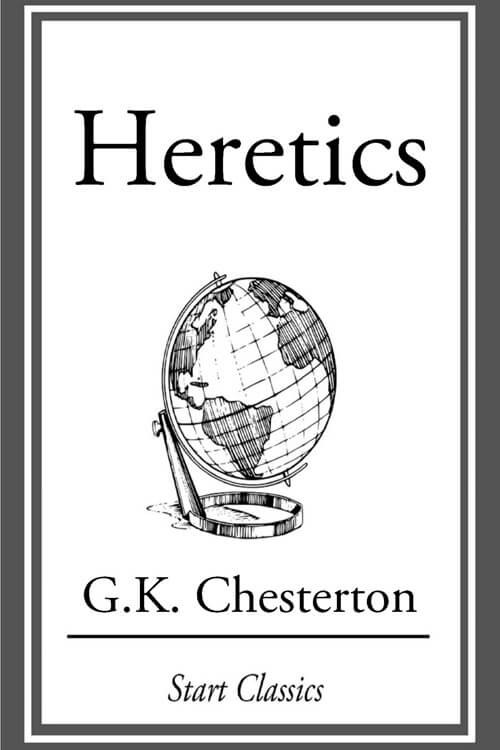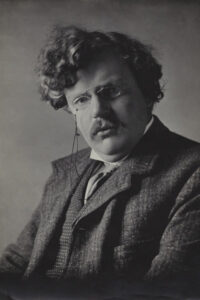
Heretics
Heretics is a collection of 20 essays by English writer G. K. Chesterton, published by John Lane in 1905. He quotes at length and argues extensively against atheist Joseph McCabe, delivers diatribes about his close personal friend and intellectual rival, George Bernard Shaw, as well as Friedrich Nietzsche, H. G. Wells, Rudyard Kipling and an array of other significant intellectuals of his day, many of whom he knew personally.
His topics range from cosmology to anthropology to soteriology, and he argues against French nihilism, German humanism, English utilitarianism, the syncretism of “the vague modern”, Social Darwinism, eugenics, and the arrogance and hostility of the European intelligentsia. Together with Orthodoxy, this book is regarded as central to his corpus of moral theology.
Read or download Book
G. K. Chesterton
Gilbert Keith Chesterton KC*SG (29 May 1874 – 14 June 1936) was an English writer, philosopher, Christian apologist, and literary and art critic.
Biography
Chesterton created the fictional priest-detective Father Brown and wrote on apologetics. Even some of those who disagree with him have recognized the broad appeal of such works as Orthodoxy and The Everlasting Man. Chesterton routinely referred to himself as an orthodox Christian and came to identify this position more and more with Catholicism, eventually converting from high church Anglicanism. Biographers have identified him as a successor to such Victorian authors as Matthew Arnold, Thomas Carlyle, John Henry Newman, and John Ruskin. He has been referred to as the “prince of paradox”. Of his writing style, Time observed: “Whenever possible, Chesterton made his points with popular sayings, proverbs, allegories—first carefully turning them inside out.”
His writings influenced Jorge Luis Borges, who compared his literature with Edgar Allan Poe’s. Chesterton was born in Campden Hill in Kensington, London, the son of Edward Chesterton (1841–1922), an estate agent, and Marie Louise, née Grosjean, of Swiss-French origin. Chesterton was baptized at the age of one month into the Church of England, though his family were irregularly practising Unitarians. According to his autobiography, as a young man, he became fascinated with the occult and, along with his brother Cecil, experimented with Ouija boards. He was educated at St Paul’s School, then attended the Slade School of Art to become an illustrator. The Slade is a department of University College London, where Chesterton also took classes in literature, but he did not complete a degree in either subject. He married Frances Blogg in 1901; the marriage lasted the rest of his life.
Chesterton credited Frances with leading him back to Anglicanism, though he later considered Anglicanism to be a “pale imitation”. He entered full communion with the Catholic Church in 1922. The couple were unable to have children. A friend from schooldays was Edmund Clerihew Bentley, inventor of the clerihew, a whimsical four-line biographical poem. Chesterton wrote clerihews and illustrated his friend’s first published collection of poetry, Biography for Beginners (1905), which popularised the clerihew form. He became godfather to Bentley’s son, Nicolas, and opened his novel The Man Who Was Thursday with a poem written to Bentley.






